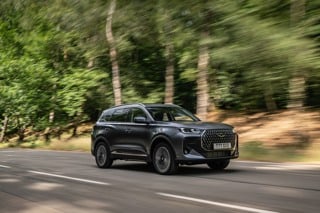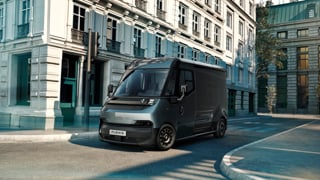Companies could cut the running costs of their fleets by an average of £350,000 and reduce CO2 emissions by more than 5% (830 tonnes) each year by replacing 10% of their current vehicles with electric models. The potential savings were identified in a British Gas study, conducted by TRL, the UK’s Transport Research Laboratory. The report found that converting 50% of a fleet to electric vehicles would result in an average annual cost saving of £1,753,000 for companies and reduce CO2 emissions in Britain by around 26% (2,320,000 tonnes).
The report found that some sectors can achieve greater benefits than others from a 10% switch to electric vehicles. Fleets in the financial services sector stand to make the highest average fleet saving at £484,000 a year and could cut annual CO2 emissions by 5.7%, or 800 tonnes.
The top five sectors that would benefit from converting their fleet to electric vehicles, according to a combination of percentage cost and CO2 savings, are:
- Financial Services
- Emergency Services/NHS Trusts
- Service industries (including IT, Leisure and Media)
- Heavy industries
- Architecture /Construction
The sector that stands to make the largest purely financial saving is transport and distribution, where companies can save on average £486,000 annually if they convert 10% of their fleet to electric power, and £2.43m if they introduce 50%.
Colin Marriott, fleet general manager at British Gas, said: “This report shows that businesses, under pressure to reduce both costs and carbon emissions, cannot afford to ignore the benefits of electric vehicles. Electric vehicles offer us so many benefits as a business that we’re introducing them into our own fleet and aim to have 1,400 by 2015 as part of our drive to reduce fleet carbon emissions by 25%.”
The report concluded that financial and carbon savings will vary depending on the specific characteristics of a fleet, such as annual mileage, vehicle duty cycle, types of vehicles used and the price of fuel and electricity. It found that electric vehicles save money in a number of ways:
- Running costs – electricity is cheaper on a per-mile basis than petrol
- Servicing costs – pure electric vehicles (not plug-in hybrids) have fewer moving parts, meaning that they need less frequent servicing
As well as these factors, the report highlights that fleets can currently take advantage of reduced taxes, as electric vehicles and plug-in hybrids pay less company car tax than petrol cars, as well as paying lower Vehicle Excise Duty and no London congestion charge. Additionally, if finds that there are also a number of government schemes that lower costs for electric vehicles at present, inducing Government’s Office for Low Emission Vehicles (OLEV) and Carbon Reduction Commitment (CRC).
The report also found that the most suitable conditions for pure EVs include low urban mileage, minimal or reducing load profile, and a frequent return to base or other charging facilities for a relatively long stop.
British Gas plans to convert 10% of its 14,000 light commercial vehicle (LCV) fleet to electric vehicles over the next three years, with the current trial of Nissan’s eNV200 electric van paving the way.




















GlennEwen - 19/12/2012 09:58
Are we saying that most delivery fleets cover less than 100 miles per day? And are we also ignoring the CO2 emitted when EVs are being produced and charged? With everyone starting to consider "well to wheel" cost + emissions, the EV starts to pale a tad. Good news regarding local air quality though.